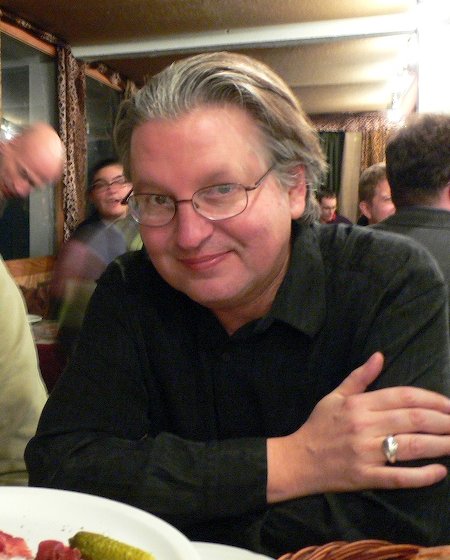Bruce Sterling latest forecast
The Internet ignores any predictions. The network is fundamentally changing people's lives and doing it in a completely unexpected way. Even the best experts and recognized visionaries are completely lost, trying to predict what the development of the World Wide Web may lead to. “My last forecast” , - the text under this title was published by Bruce Sterling on the site of Wired magazine.

Bruce Sterling recalls one of the latest research that the Pew Internet & American Life Project has conducted. It was a survey of 742 experts about how they see the future of the Internet. Experts were offered seven options for the potential development of the Internet. They had to evaluate the reality of each option and comment on it. The results of this survey , according to Bruce Sterling, show the futility of such a prediction.
Hundreds of experts answer the same questions in exactly the opposite way. In their forecasts it is very difficult to catch any general trend. There is a wide range of opinions.
')
One way or another, but futurology has no future , says Bruce Sterling. Today a huge number of futurists divorced. Methods and tools of futurology are available for everyone, and any blogger considers himself an expert. Moreover, the very word "futurology" (futurism) goes out of fashion. Today, “future specialists” call themselves more often “strategy consultants” or “venture capital investment researchers.” Futurology went to the masses, and a large number of “experts” create a lot of noise from conflicting forecasts and predictions.
Bruce Sterling will continue to blog, but will no longer publish the author's column in Wired, in which he spoke about his vision of the future.

Bruce Sterling recalls one of the latest research that the Pew Internet & American Life Project has conducted. It was a survey of 742 experts about how they see the future of the Internet. Experts were offered seven options for the potential development of the Internet. They had to evaluate the reality of each option and comment on it. The results of this survey , according to Bruce Sterling, show the futility of such a prediction.
Hundreds of experts answer the same questions in exactly the opposite way. In their forecasts it is very difficult to catch any general trend. There is a wide range of opinions.
')
And this is where such studies are good: they show not individual glimpses of intuition, but rather the spirit of the times. Reading the Pew study, it becomes clear that we are entering a new era of the post-Internet , a world in which the Network will be everywhere, like the air we breathe, and we will use it without objection. This will not be a happy Nirvana from technophile dreams, but the nightmares of conservative inhabitants will not come true. It will look much like today, but more contrast, sharper and more voluminous.
...
The future of the Internet is not about social institutions, but about individuals. Cheap communication will spread everywhere, encouraging creativity, collaboration and teleworking. The network itself will recede into the background. If you are under 21, you probably don’t care at all about the difference between virtual and real, online and offline. This is because the two realities penetrate each other. Google Earth mingled with Google Maps, and everyday life is displayed on Flickr. Like the real world, the Network will acquire an international scale and less and less rely on English. Wrapped in Chinese Kung Fu clothing, she will speak with an Indian accent and ooze Brazilian sexuality.
One way or another, but futurology has no future , says Bruce Sterling. Today a huge number of futurists divorced. Methods and tools of futurology are available for everyone, and any blogger considers himself an expert. Moreover, the very word "futurology" (futurism) goes out of fashion. Today, “future specialists” call themselves more often “strategy consultants” or “venture capital investment researchers.” Futurology went to the masses, and a large number of “experts” create a lot of noise from conflicting forecasts and predictions.
Bruce Sterling will continue to blog, but will no longer publish the author's column in Wired, in which he spoke about his vision of the future.
Source: https://habr.com/ru/post/4833/
All Articles